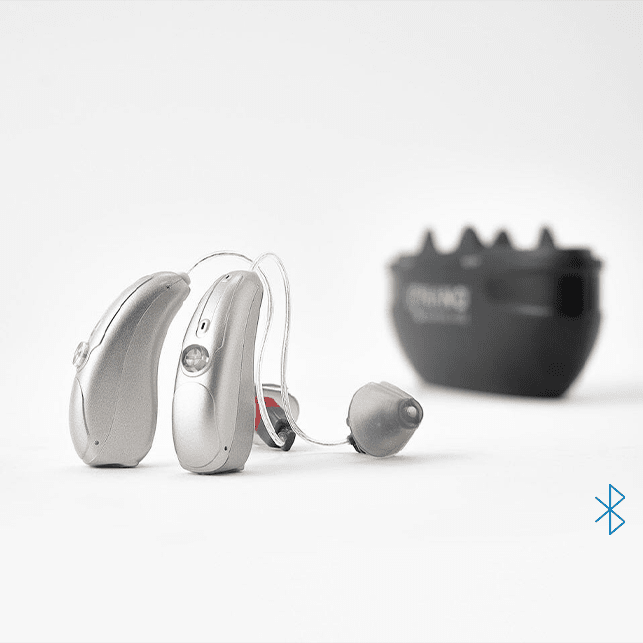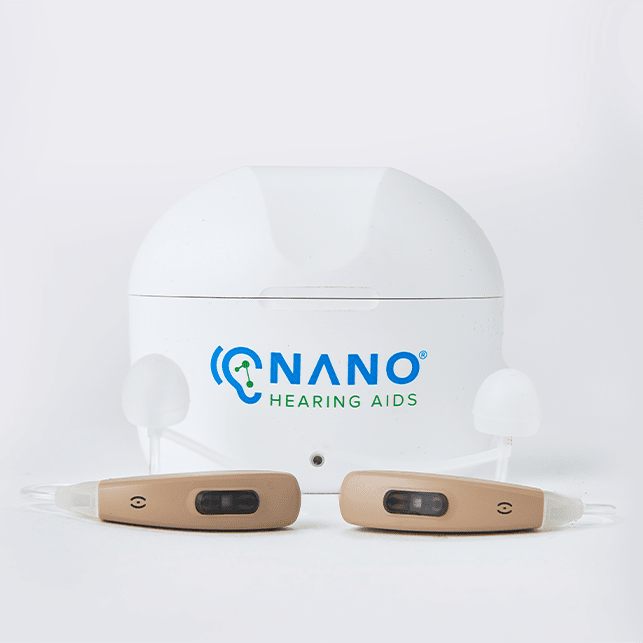Do you have difficulty sleeping or concentrating due to a ringing or buzzing sound in one or both ears? If so, you might have a condition known as tinnitus. When tinnitus occurs, it can sometimes indicate perceived mild to moderate hearing loss or severe hearing loss. It can also occur as a result of age, stress, anxiety, earwax buildup, or many other potential reasons.
Learn more about how tinnitus can create issues with concentrating or sleeping and other symptoms it can cause.
How Tinnitus Affects Concentration
Tinnitus can significantly impact concentration, as the constant ringing or buzzing sensation can be distracting and overwhelming. It could lead to difficulty focusing on tasks, following conversations, or retaining information. Specifically, tinnitus can affect concentration in the following ways:

How Tinnitus Affects Sleep
Tinnitus can disrupt your sleep patterns, making it challenging to fall asleep or stay asleep throughout the night. The persistent noise can also heighten stress and anxiety, further exacerbating sleep disturbances. Specifically, tinnitus can affect sleep in the following ways:
What Can I Do to Reduce Tinnitus-Related Sleep Disturbances?
To reduce tinnitus-related sleep disturbances, it's important to address underlying factors contributing to poor sleep. Practicing good sleep hygiene, such as maintaining a regular sleep schedule and creating a relaxing bedtime routine, can promote better sleep quality. Avoiding caffeine and electronic devices before bedtime can also improve sleep duration and help prevent sleep deprivation, which exacerbates tinnitus.
However, you should also schedule a consultation with a hearing healthcare professional. They can conduct a series of tests to determine the cause of your tinnitus and recommend the best form of treatment.
Why Does Tinnitus Seem to Worsen When I'm Trying to Focus?
Tinnitus can worsen when you're trying to focus for a few reasons. First, it's hard to concentrate if your ears are ringing or buzzing. Second, it can be difficult to focus due to how poor sleep affects cognitive performance. When you're sleep deprived or experiencing poor sleep, your brain's ability to filter out background noises, including tinnitus, is compromised.
Which Strategies Can I Use to Improve Concentration Despite Tinnitus?
To improve concentration despite tinnitus, it's crucial to prioritize healthy sleep habits and ensure you get enough sleep. Establishing a consistent sleep schedule and aiming for an adequate sleep duration (7 to 9 hours per night) can potentially help reduce the impact of tinnitus on your cognitive performance.
Additionally, implementing relaxation techniques such as deep breathing or mindfulness meditation can alleviate stress and improve focus.
Additional Symptoms of Tinnitus
Tinnitus can cause many symptoms beyond difficulty sleeping and having trouble focusing, including:

Causes of Tinnitus
There are several possible causes of tinnitus, including those below. A visit to a hearing healthcare professional can help determine the exact cause.
What To Do If You Suspect You Have Tinnitus
If you find yourself dealing with persistent tinnitus or suspect you might have this condition, it's important to book an appointment with a hearing healthcare professional. Diagnosis usually involves a physical exam, a review of your medical history, and various hearing tests such as audiograms and, if needed, imaging scans.
Through this evaluation, your specialist can create a treatment plan tailored to the cause and severity of your tinnitus symptoms.
It's important to schedule a consultation with a hearing healthcare professional if you're experiencing tinnitus. They can identify the underlying cause of your tinnitus and recommend the most appropriate treatment path forward.
What are Other Symptoms of Hearing Loss?
Tinnitus can occur alongside symptoms of both mild to moderate and severe hearing loss.
Symptoms of Perceived Mild To Moderate Hearing Loss
You might have perceived mild to moderate hearing loss if you experience any of the below:
If you experience the above symptoms, you might benefit from OTC hearing aids. They don’t require a prescription or a visit to a hearing healthcare professional. If you are 18 years old or older and have perceived mild to moderate hearing loss, you can purchase OTC hearing aids.
Symptoms of Severe Hearing Loss
You might have severe hearing loss if you have the below symptoms:
If you think you might have severe/profound hearing loss, you should consider scheduling a consultation with a hearing healthcare professional. They can conduct various hearing tests to determine the severity of your hearing loss, causes, and next steps for treatment (such as prescription hearing aids).
OTC Hearing Aids For Perceived Mild To Moderate Hearing Loss
Many people with perceived mild to moderate hearing loss have found it beneficial to wear hearing aids that are OTC, as they can be a great solution for improving hearing. These FDA-regulated devices don't need a prescription, hearing exam, or doctor's appointment. You can try them in the comfort of your home, and you can adjust the volume to suit your specific needs. With Nano OTC hearing aids, you simply pick the best dome size for your ears, turn them on, and put them in. Keep in mind it might take several days or weeks for your ears and brain to get used to them, which is why Nano OTC Hearing Aids comes with a 45-day money-back guarantee and free 24/7 lifetime support.




